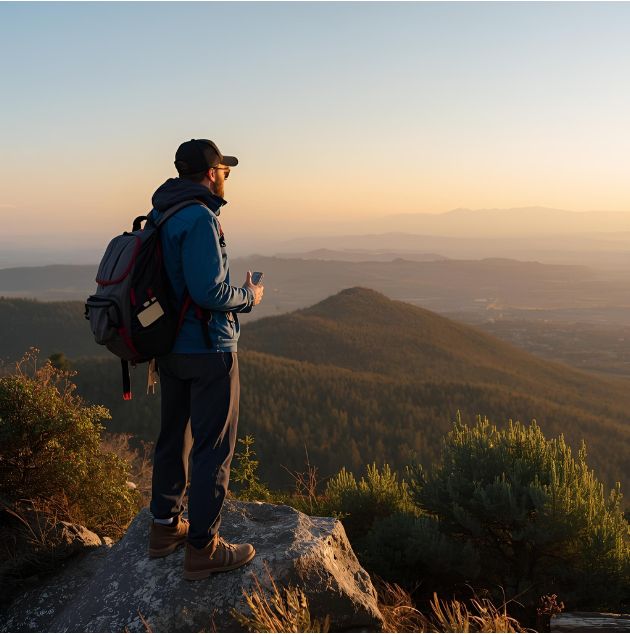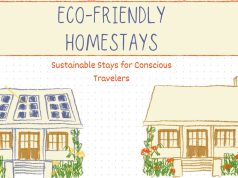The Dawn of a New Travel Era
The world is more accessible than ever before. With a few clicks, we can book a flight to a remote island, a train through majestic mountains, or a room in a bustling foreign city. We scroll through perfectly curated images of pristine beaches, ancient ruins, and vibrant cultures, and the urge to explore becomes irresistible. But as we pack our bags, a crucial question emerges in this new era of global movement: What is our impact on the places we visit?
Travel, in its purest form, is a force for good. It broadens horizons, fosters cross-cultural understanding, and creates lifelong memories. However, the shadow side of tourism—overcrowding, environmental degradation, and economic leakage—can tarnish the very destinations we cherish. This is where sustainable and ethical travel comes in. It’s a philosophy and a practice that challenges us to move beyond being mere tourists and to become conscious, responsible global citizens.
Sustainable travel isn’t about sacrificing adventure or comfort. It’s not about foregoing the joys of discovery. Instead, it’s about enhancing them. It’s about seeking authentic experiences that enrich both our lives and the lives of the people we meet. It’s about ensuring that the natural and cultural wonders of our planet can be enjoyed by future generations. This guide is your comprehensive roadmap to understanding and implementing the principles of sustainable travel, from the initial planning stages to long after you’ve returned home.
The Three Pillars of Sustainable Travel
To truly grasp the concept, it helps to understand its foundation, which is often broken down into three core pillars. A truly sustainable approach to travel finds a harmonious balance between all three.
- Environmental Sustainability (Planet): This is often the first thing people think of. It involves minimizing your negative impact on the natural world. This includes conserving resources such as water and energy, reducing waste and pollution, protecting biodiversity and ecosystems, and mitigating your carbon footprint from transportation.
- Socio-Cultural Sustainability (People): This pillar focuses on respecting and preserving local cultures, traditions, and heritage. It means engaging with local communities in a way that is respectful and mutually beneficial, ensuring that tourism doesn’t disrupt their way of life but instead empowers them. It’s about authentic cultural exchange, not cultural commodification.
- Economic Sustainability (Prosperity): This is about ensuring that the financial benefits of tourism flow directly into the local community. It means supporting locally-owned businesses, hotels, restaurants, and tour operators, rather than large, foreign-owned corporations where profits are often funneled out of the country. This creates stable, long-term economic opportunities for residents.
Before You Go: Planning Your Eco-Conscious Trip
The journey to becoming a sustainable traveler begins long before you set foot on a plane. Thoughtful planning is the single most effective tool in your arsenal.

Choosing Your Destination Wisely
Not all destinations are created equal when it comes to sustainability. Some locations are buckling under the strain of “overtourism,” where the sheer number of visitors degrades the environment, strains infrastructure, and displaces locals. Consider traveling during the “shoulder seasons” (the periods just before and after the peak season) to reduce pressure and often enjoy a more authentic experience with fewer crowds. Alternatively, explore lesser-known destinations that are actively seeking to build a sustainable tourism model. Research a country’s commitment to environmental protection and community-based tourism initiatives before you book.
Packing Light and Smart: Your Eco-Travel Kit
Every item in your suitcase has an impact. Packing light reduces the weight of the aircraft, leading to lower fuel consumption and fewer carbon emissions. More importantly, packing smart means bringing items that help you reduce waste on the road.
- Reusable Water Bottle with a Filter: This is non-negotiable. It eliminates the need for countless single-use plastic bottles, saving you money and reducing plastic waste dramatically.
- Reusable Coffee Cup & Straw: Perfect for your daily coffee or smoothie fix without the disposable cup and plastic straw.
- Tote Bag or Daypack: Essential for shopping at local markets and avoiding plastic bags.
- Solid Toiletries: Shampoo bars, conditioner bars, solid toothpaste, and deodorant sticks reduce plastic packaging and the risk of spills in your luggage.
- Reef-Safe Sunscreen: If you plan on swimming in the ocean, regular sunscreens containing oxybenzone and octinoxate can be incredibly harmful to coral reefs. Choose mineral-based, non-nano options.
- A Small Tupperware: Great for taking leftovers from a restaurant or buying street food without styrofoam containers.
Selecting Eco-Friendly Transportation
Transportation is often the largest part of a trip’s carbon footprint. While flying may be unavoidable for long distances, you can still make conscious choices. Fly direct whenever possible, as takeoffs and landings consume the most fuel. For shorter distances, embrace “slow travel” by opting for trains or buses, which have a significantly lower carbon footprint per passenger and offer a more scenic way to see a country. Once at your destination, prioritize walking, cycling, or using local public transport over taxis or rental cars.
For the emissions you can’t avoid, consider purchasing carbon offsets. These are investments in projects that reduce greenhouse gases, such as renewable energy development or reforestation. Ensure you use a reputable, third-party verified program like Gold Standard or Verra.
Booking Green Accommodations
Where you sleep matters. Steer clear of large, all-inclusive resorts that often import food and export profits. Instead, seek out accommodations that are locally owned and operated, such as guesthouses, homestays, or boutique hotels. Look for places that are transparent about their sustainability practices. Do they hire local staff? Do they source food from local farmers? Do they have programs for water and energy conservation? Beware of “greenwashing”—vague claims without proof. Look for certifications from recognized bodies like Green Globe, EarthCheck, or LEED, but remember that many small, genuinely sustainable operations may not be able to afford these certifications. Read reviews and look for evidence of their commitment.
On the Ground: Making a Positive Impact During Your Travels
Once you’ve arrived, your daily choices will define your impact. This is where your planning pays off and your consciousness as a traveler truly shines.

Respect Local Culture and Traditions
You are a guest in someone else’s home. Showing respect is paramount. Learn a few basic phrases in the local language, such as “hello,” “please,” and “thank you.” This simple effort is often deeply appreciated. Be aware of and respect local dress codes, especially when visiting religious sites. Always ask for permission before taking a photograph of someone; a smile and a gesture are universal. Be mindful of local customs and social etiquette. By observing and adapting, you not only show respect but also open the door to more meaningful interactions.
Support the Local Economy Directly
Make it your mission to ensure your money benefits the local community. Eat at family-run restaurants that serve traditional cuisine. Shop at local markets for souvenirs, buying directly from the artisans who made them (and always bargain respectfully and with a smile). Hire licensed local guides for tours; their knowledge is invaluable, and you are supporting a local expert. By consciously choosing where you spend your money, you contribute directly to the economic well-being of the destination, empowering the community and validating the importance of their cultural and natural heritage.
Minimize Your Environmental Footprint with ‘Leave No Trace’
The seven principles of “Leave No Trace” are a gold standard for outdoor ethics, but they apply just as well to any travel context. Always carry out everything you carry in, including food scraps. Stick to marked trails when hiking to prevent erosion and protect delicate flora. Observe wildlife from a distance and never feed them, as it disrupts their natural behaviors. Conserve water, especially in arid regions, by taking shorter showers. Turn off the lights and air conditioning when you leave your hotel room. And, of course, steadfastly refuse single-use plastics whenever they are offered.

Choose Ethical Wildlife Encounters
Experiences with animals are often a highlight of travel, but they can be a minefield of unethical practices. A true wildlife sanctuary or conservation project will never allow you to ride, hug, or take selfies with wild animals. These activities are stressful for the animals and often involve cruel training methods. Avoid any attraction that features animals performing tricks. Instead, opt for experiences that allow you to observe animals in their natural habitat from a respectful distance, led by guides who prioritize the animals’ welfare. Support organizations dedicated to the rehabilitation and protection of wildlife, not their exploitation for entertainment.
After You Return: Extending Your Impact
Your role as a sustainable traveler doesn’t end when you unpack your suitcase. The final phase is about reflection and amplification.
Sharing Your Story Responsibly
When you post about your trip on social media or share stories with friends, go beyond the perfect sunset photo. Talk about the wonderful locally-owned restaurant you discovered, the sustainable practices of your eco-lodge, or the cultural insights you gained from your local guide. By highlighting these positive experiences, you can inspire others to travel more consciously. Tag the small businesses you supported to give them a valuable signal boost. Your storytelling has the power to shape others’ travel choices for the better.
Providing Constructive Feedback
Your feedback is a powerful tool. Leave glowing online reviews for the businesses that are doing things right, specifically mentioning their sustainable efforts. This helps other conscious travelers find them and rewards their commitment. If you had an experience where a business could improve (for example, if a hotel used excessive plastic), consider providing that feedback privately and constructively. Many businesses are open to making changes, but may not be aware of the demand for them.
Conclusion: Your Journey Towards a Better Way to Travel
Sustainable travel is not about achieving perfection. It’s a journey, not a destination. It’s about progress, not purity. You may forget your reusable bag one day or have to take a short flight you wish you could have avoided. That’s okay. The goal is not to be a perfect traveler, but a more mindful one.
Every conscious choice—every plastic bottle refused, every local artisan supported, every cultural custom respected—is a step in the right direction. These small actions, when multiplied by millions of travelers, create a powerful wave of positive change. They transform tourism from an extractive industry into a regenerative one. By embracing these principles, you do more than just see the world; you actively participate in protecting it, ensuring that the magic of travel remains for all who follow in our footsteps. The most beautiful postcard is the one that depicts a world made better, not worse, by our presence in it.
Beyond the Postcard guides travelers to explore responsibly and support local communities, while The Ultimate Digital Nomad Blueprint offers practical tips for working and traveling worldwide. Together, they help plan meaningful and balanced journeys.











